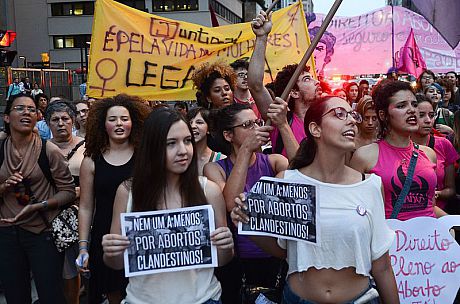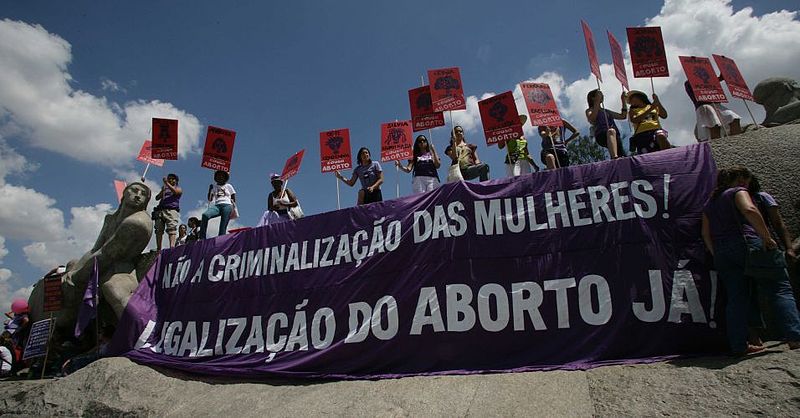- The importance of global research networks in post-impeachment Brazil
CORTH Blog: 11 December 2017
Dr Catarina Helena Cortada Barbieri
Professor, Sao Paulo Law School – Getulio Vargas Foundation, Editor-in-Chief of Direito GV Law Review
Email: catarina.barbieri@fgv.br
What is the role of academia and women and gender studies in post-impeachment Brazil? From 1964 until 1985 Brazil was under the government of a military dictatorship. It was a period of great political and social repression including of academics. The first direct elections were held in 1989. Since then Brazilians have experienced unprecedented freedom and significant social and economic improvement. Nevertheless, after 13 years of a centre-left government (Luis Ignacio “Lula” da Silva, 2003-2011 and Dilma Rousseff, 2011-2016) social tensions – worsened by an economic crisis – have re-emerged. Amid the culture wars we have been experiencing since the last presidential election in October 2014 – which peaked during Ms. Rousseff’s impeachment process in 2016 – I wonder how much one can expect from individual academics and what our international colleagues can do to help?
The toxicity of the public debate seems to have reached academia, manifest in two recent events. The first event was the visit of Judith Butler – a famous professor of gender studies at UC-Berkeley – to Brazil in early November 2017. She was one of the organisers of a conference (“The Ends of Democracy”) focused on the challenges that the rise of populist movements imposes on liberal democracy. When the event was announced, conservative groups on social media demanded that it be cancelled. The conference continued, so these groups called for a protest in front the venue. Claiming that she is the creator of “gender ideology,” they burned Butler in effigy — as a witch wearing a pink bra. Counter-protesters stood opposite in support of Butler and asked for more understanding, inclusion and less hatred. A group of protesters even harassed her at the airport, shouting phrases such as “go away, paedophile, child killer”.
 The second event received less media coverage but was equally worrying. In a traditional university in the northeast state of Bahia (Federal University of Bahia, or UFBA), at least three professors were threatened – one of them with death – due to their research areas. A master's student was also threatened days before her viva. The viva went on, but security had to be placed at the door, which is unheard of. All of those targeted are members of the Center for Interdisciplinary Studies on Women, a research centre on gender and sexuality. Even though only extreme cases like this reach the media, in informal conversations and internet forums these events are becoming more and more common.
The second event received less media coverage but was equally worrying. In a traditional university in the northeast state of Bahia (Federal University of Bahia, or UFBA), at least three professors were threatened – one of them with death – due to their research areas. A master's student was also threatened days before her viva. The viva went on, but security had to be placed at the door, which is unheard of. All of those targeted are members of the Center for Interdisciplinary Studies on Women, a research centre on gender and sexuality. Even though only extreme cases like this reach the media, in informal conversations and internet forums these events are becoming more and more common.
Brazil will elect a new president in 2018. At this point, the outcome of the presidential election is very difficult to predict. The current president – Michel Temer – is trying to construct a centre-right alliance to compete with Luis Ignacio Lula da Silva (centre-leftist politician and two-time president). On the far right, Congressman Jair Bolsonaro appears to be in second place according to some polls. He is well known for his anti-gay and misogynistic positions and once remarked to a fellow congresswoman she was “not worthy of being raped.” The possibility of a centre-right or far-right presidency is real. Whatever the outcome is, there is a conservative turn in public discourse that does not seem to be going away any time soon. And in Congress there is a handful of bills that could turn back the few advances we have made for women and LGBTQ rights. One of them – an amendment to the constitution – states that life starts at conception, which would theoretically prohibit abortion tout court, including in cases of rape.
In this scenario, the academic community plays an important societal role. Democracy does not exist where there is no freedom and security to think, question and share ideas. Therefore, fighting against the trend of silencing researchers is an imperative. But how should an individual academic under threat fulfil that imperative? How should one act when one’s classroom has been invaded? Or when one is under attack by a social media campaign that equates one’s research and teaching interests to paedophilia, or accuses one of destroying society through the erosion of traditional family values? I keep asking myself what I would do if that happened to me. The honest answer is that I do not know.
In higher education, the university leadership has an obligation to guarantee an environment of freedom and safety. Unfortunately that is not always the case. Furthermore, academia can be very isolating. And even if the researcher has institutional assurances, the psychological pressure can be too much to bear. One of the ways globally leading universities can help is to reach out to researchers in those situations and include those voices as part of a larger conversation. Having the confidence of being part of a global network of researchers can go a long way in encouraging people to continue to research on topics such as women and gender studies or queer theory, which in this part of the globe are still considered culturally sensitive topics. We should not underestimate the value of building networks. Amid the culture wars in which we seem to be engulfed in Brazil, a sense of not being alone goes a long way.



